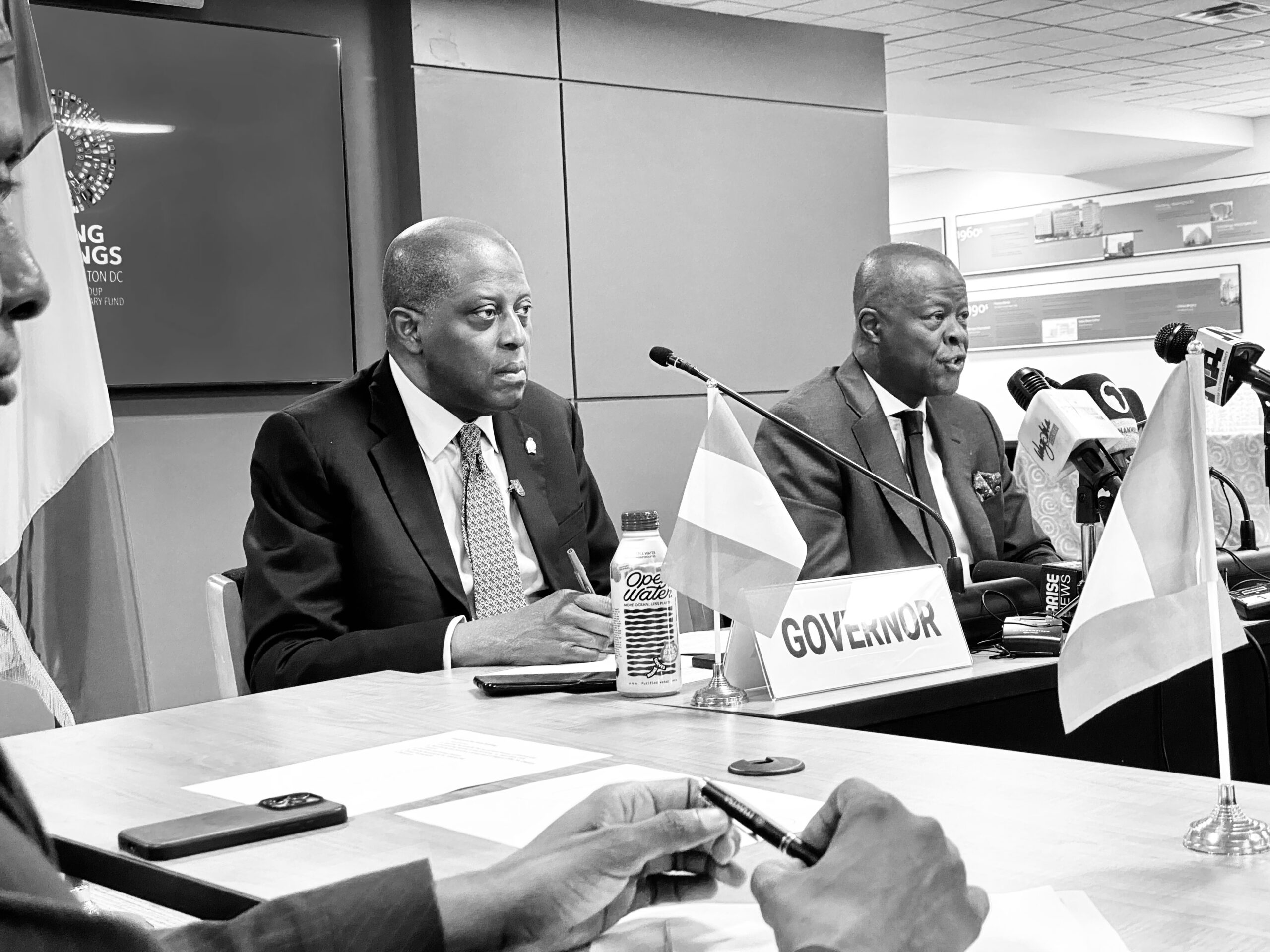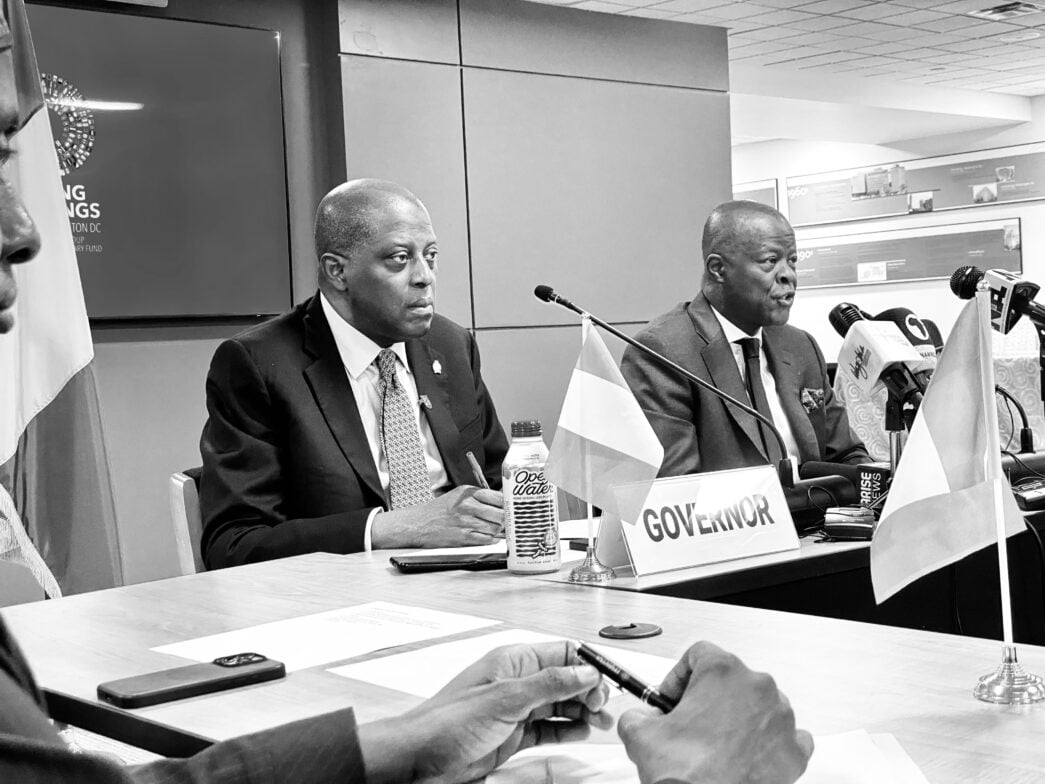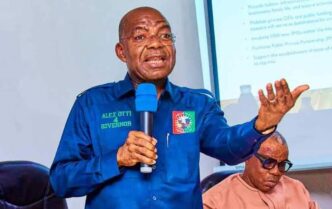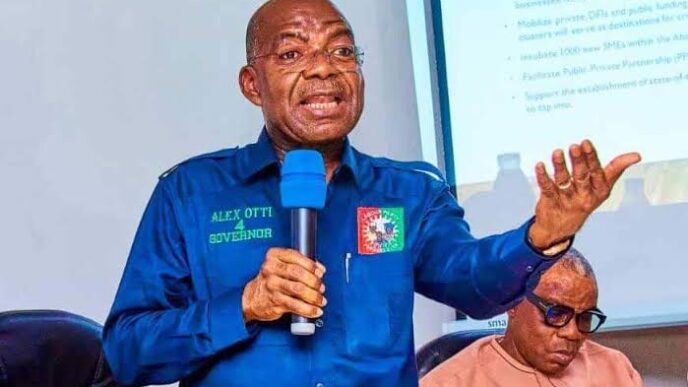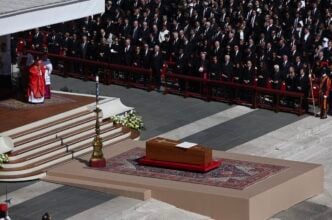
Wale Edun, the minister of finance and coordinating minister of the economy, says Nigeria is moving away from concessional funding to revenue mobilisation.
Edun spoke during a news conference on the outcome of Nigeria’s participation at the 2025 International Monetary Fund (IMF) and World Bank spring meetings, held in Washington DC, the United States (US).
The press briefing was jointly held by Olayemi Cardoso, the governor of the Central Bank of Nigeria (CBN).
Advertisement
Concessional financing refers to loans often provided or sourced at lower interest rates.
Speaking to journalists on the federal government’s revenue generation plans, Edun said Nigeria’s tax revenue would increase when the bills are passed into law.
In January, the Nigeria Governors’ Forum (NGF) finally backed the proposed laws, currently at the national assembly.
Advertisement
The proposed legislations are the Nigeria tax bill, the tax administration bill, and the joint revenue board establishment bill.
“We have with us the chairman of the senate committee on finance, as well as the deputy chairman of the house committee on finance, and they are major players as far as the tax reform bill is concerned,” the minister said.
“They can probably tell you better than I, but I think the imminent passing of that tax reform bill is on the horizon, and once it is passed, it does have in it the potential for increasing tax as a percentage of GDP. It does have in it the potential for increasing tax revenues that are earned by the government.”
‘FG NOW FOCUSING ON REVENUE MOBILISATION RATHER THAN CONCESSIONAL FUNDING’
Advertisement
Edun said the government has moved away from its focus on concessional funding from organisations, such as the World Bank, bilateral agencies, the European Union, and the German and French governments.
He said the government has also pivoted from commercial funding, “first from Nigerians, the diaspora of Nigerians saving the dollars by buying government dollar-denominated eurobonds, and then ultimately going to the eurobond market”.
“But that has run its course, and the focus now is on domestic revenue mobilisation,” the minister said.
“The focus is on crowding in the private sector and it’s important to point out that the philosophy, the strategy, and the policy of the administration of President Bola Ahmed Tinubu is to crowd in the private sector to stabilise the economy so that they can come in and invest across the board: infrastructure, digital, toll roads.”
Advertisement
The minister said all revenue-earning areas of the government are open to the private sector, stressing that the budget contains a line for privatisation.
This, he said, demonstrates the authorities’ intention to open up the economy to the private sector, describing it as a way of “blocking and filling” any gaps that might have arisen from the fallout of the US tariffs.
Advertisement
‘CBN FOCUSED ON BRINGING INFLATION DOWN TO SINGLE DIGITS’
On his part, Cardoso stated that the reforms implemented over the last 18 months have brought about stability in the economy, setting the stage for investment and growth.
Advertisement
They have also strengthened monetary buffers and positioned Nigeria to “better withstand external shocks”, according to Cardoso.
“Indeed, the macroeconomic stability we are beginning to see today would not have been possible without these decisive actions. We recognise that inflation remains the most disruptive force to the economic welfare of Nigerians,” the governor said.
Advertisement
“Our policy stance is firmly focused on bringing inflation down to single digits in a sustainable manner over the medium term. Our goal is to restore price stability, protect household purchasing power, and lay the foundation for long term investment.”
Cardoso said due to the regulator’s “disciplined reforms and policy clarity”, the naira has stabilised sustainably against the dollar, emphasising that the wide gap between the official and parallel market rates has disappeared.
He also said speculative arbitrage has vanished, describing the development as the “first in Nigeria’s recent history”.
“This renewed stability has restored confidence and spurred autonomous inflows through formal channels. These inflows are diversifying our foreign exchange sources beyond oil,” he added.
The governor reiterated the bank’s commitment to a market-determined foreign exchange (FX) regime, enhancing transparency, and restoring investor confidence.

